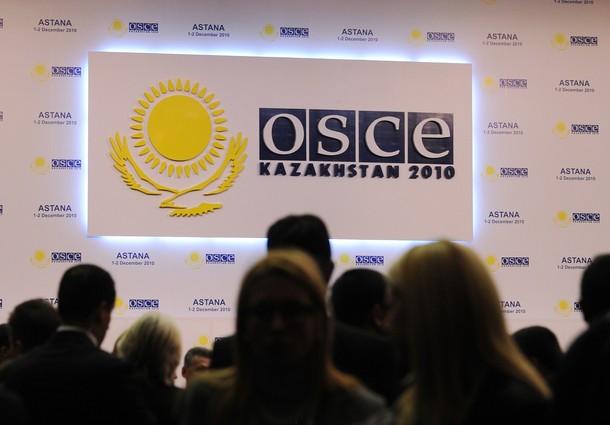
When leaders of the Organization for Security and Cooperation in Europe (OSCE) gather for a summit in Astana, Kazakhstan this week, they will visit a region in turmoil. Central Asia is beset by ethnic conflict, poor governance and instability in Afghanistan. The spread of transnational threats from this strategic region mean that its security and stability matter to the West. The OSCE should recognize the important role it can play in enhancing security and stability in Central Asia and undertake a series of initiatives to strengthen its activities in the region.
The OSCE has not hosted a summit since 1999 as a result of tensions between Washington and Moscow and a lack of substantive items for a summit agenda. Today, prospects for cooperation are brighter and the need for action more urgent. U.S.-Russian relations have improved at the bilateral level and violence in Kyrgyzstan and Afghanistan demonstrate an important need for the increased engagement of multilateral institutions in Eurasia. The OSCE is well positioned to take on this role due to its inclusive nature and its practical field missions that enhance security and promote transparency.
Summits need to tell a story and advance a compelling vision to be successful. If the Astana summit is to be remembered as a success, it must launch a series of initiatives that demonstrate the OSCE’s ability to address real security threats in Eurasia.
OSCE leaders could start with Kyrgyzstan, where turmoil and ethnic violence earlier this year demonstrated the fragility of Central Asia’s authoritarian regimes. The OSCE is a relatively popular institution in Kyrgyzstan and is well positioned to improve the security situation there through its police monitoring and reconciliation activities.
Yet the OSCE mission in Kyrgyzstan is allocated but a fraction of the resources made available to its activities in the Balkans. OSCE leaders should commit to strengthening the capacity of the organization’s field offices in Kyrgyzstan and other Central Asian republics, focusing primarily on the hard security matters that are of mutual interest to both the West and Central Asian governments.
The Astana summit should also strengthen the role of the OSCE in promoting Afghanistan’s security and integration into a broader, more stable Eurasia.
Last month’s NATO summit produced important commitments by Russia and Kazakhstan to enhance their contributions to Afghanistan’s security. The OSCE can do its part by stepping up border management and counternarcotics activities, as well as training Afghan civil servants. These activities might make only incremental progress to supporting Afghanistan’s security and stability, but more importantly, they will demonstrate the political commitment of the OSCE and its member states to the international effort in Afghanistan.
The Astana OSCE summit will not produce any dramatic breakthroughs, but it can make important progress in bringing much-needed stability to a volatile region of the world if OSCE leaders agree to enhance the organization’s Eurasian dimension.
Jeff Lightfoot is an Associate Director of the Atlantic Council’s International Security Program. This article originally appeared on The Fresh Outlook. Photo credit: Getty Images.
Image: 610x_44.jpg

